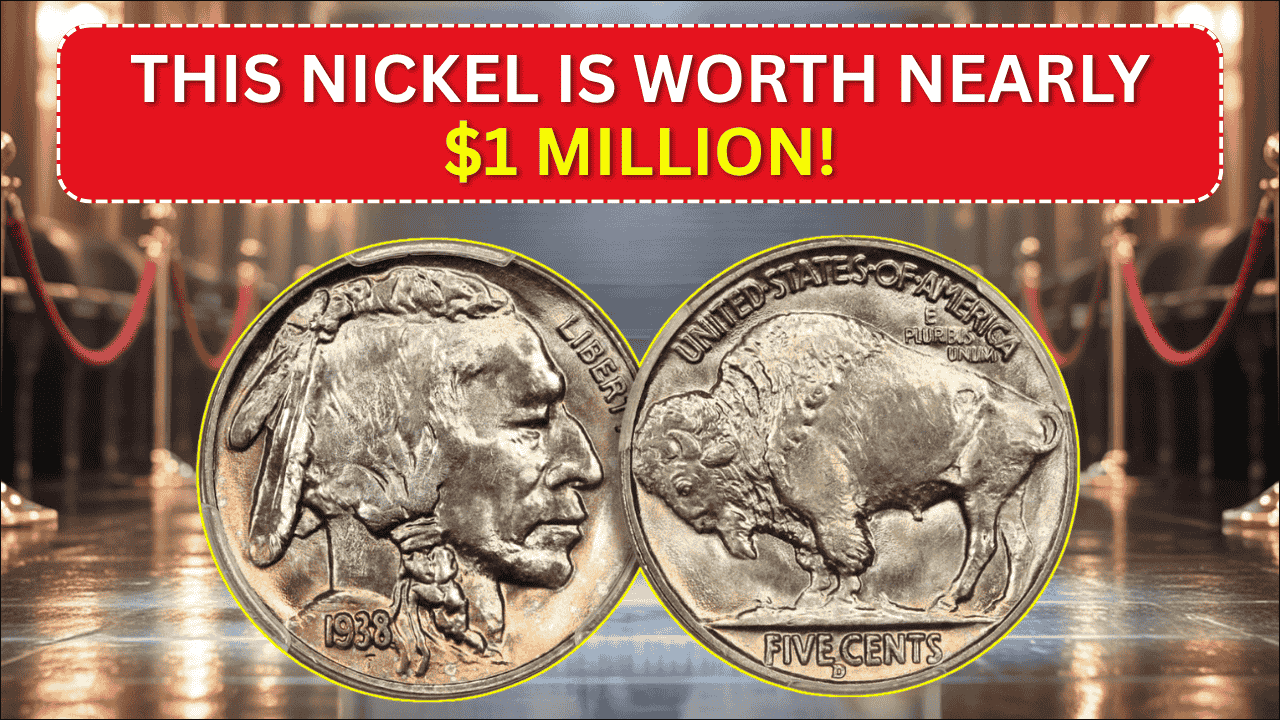An ordinary-looking $5 bill from 2022 has shocked the numismatic world after it turned out to contain a rare misprint known as a “ghost ink” error. Initially received as loose change, this note was later sold for an eye-watering $69,000 at a private auction. The discovery has sparked a surge in interest among currency collectors and casual holders alike, prompting many to take a closer look at their own bills.
What makes this case extraordinary isn’t just the rarity of the error, but the fact that it was found purely by chance. With modern technology and rigorous quality control at the Bureau of Engraving and Printing, printing errors rarely escape into circulation—especially on newer notes like this one.
Table of Contents
Overview
| Detail | Description |
|---|---|
| Bill Denomination | $5 |
| Year Issued | 2022 |
| Type of Error | Ghost Ink Misalignment |
| Error Description | Faint, duplicated Abraham Lincoln portrait overlapping Treasury seal |
| Discovery Location | Ohio (gas station pocket change) |
| Grading Agency | Paper Money Guaranty (PMG) |
| Condition | High-grade, uncirculated condition |
| Auction Sale Price | $69,000 |
| Market Significance | Rare modern error; highly sought by collectors |
Understanding the “Ghost Ink” Error
The term “ghost ink” is used to describe a specific type of printing mistake that results in faint, misaligned images or elements appearing outside of their intended areas on a banknote. On this particular $5 bill, a lightly duplicated portrait of Abraham Lincoln was seen offset and overlapping with the Treasury seal. The secondary image was faded but clearly visible, creating a ghostly effect that gave the error its name.
Unlike wear-and-tear damage or basic ink smudges, ghost ink errors are caused by mechanical issues during the high-speed printing process. They may involve misaligned print plates or an excess ink deposit that wasn’t properly managed. Since these kinds of mistakes are extremely rare—especially on modern notes—they are highly prized by collectors.
A Chance Discovery in Everyday Change
The person who stumbled upon this valuable note has chosen to remain anonymous but shared how they came across it. While buying snacks at a gas station in Ohio, they received the $5 bill as part of their change. Nothing seemed unusual at first glance. But upon closer inspection, the faded double portrait and odd ink patterns caught their attention.
Driven by curiosity, they posted a photo of the note on a currency collectors’ forum. The image immediately sparked interest. Experts weighed in and verified that the note featured a legitimate printing error and hadn’t been altered or damaged post-production.
From Wallet to Windfall
After confirming the authenticity of the error, the note was submitted to Paper Money Guaranty (PMG), a top-tier grading agency that specializes in evaluating and certifying currency. PMG examined the note, confirmed its pristine condition, and categorized it as a rare “Ghost Ink Misalignment Error.”
Once graded and authenticated, the note was listed in a private auction, where it caught the attention of multiple high-level collectors. Intense bidding pushed the final price up to $69,000—a staggering sum for what was once just five dollars in a wallet.
You Might Be Holding a Hidden Gem
Though rare, misprinted bills like the ghost ink $5 note prove that valuable finds can happen unexpectedly. As inflation rises and people rely less on cash, printed currency becomes even more of a niche collectible. That makes each misprint even more important to collectors and historians alike.
Being alert and informed could be the difference between spending $5 and pocketing tens of thousands. A little attention to detail might just pay off in a big way.
Official Currency Information
For those interested in learning more about U.S. currency production and security features, you can visit the U.S. Bureau of Engraving and Printing’s official site. They offer resources about how notes are printed, error types, and tips for identifying legitimate U.S. currency.
Final Thoughts
The astonishing sale of a 2022 $5 bill with a ghost ink printing error is a powerful reminder that rare collectibles can show up anywhere—even in your change from a snack purchase. As digital transactions become more common, physical currency continues to hold surprising value for collectors.
So next time you’re handed a few bills, take a closer look. That $5 note in your wallet might be worth far more than you think—and could lead to a life-changing surprise.
FAQs
1. What is ghost ink on currency?
A = Ghost ink is a printing error where faded, duplicate images or ink smears appear outside their intended placement on a bill.
2. How do I verify a misprinted note is real?
A = You can send it to a professional grading service like PMG for authentication and classification.
3. Can modern bills still have valuable printing errors?
A = Yes, despite high-tech printing, rare errors still occasionally slip into circulation.





